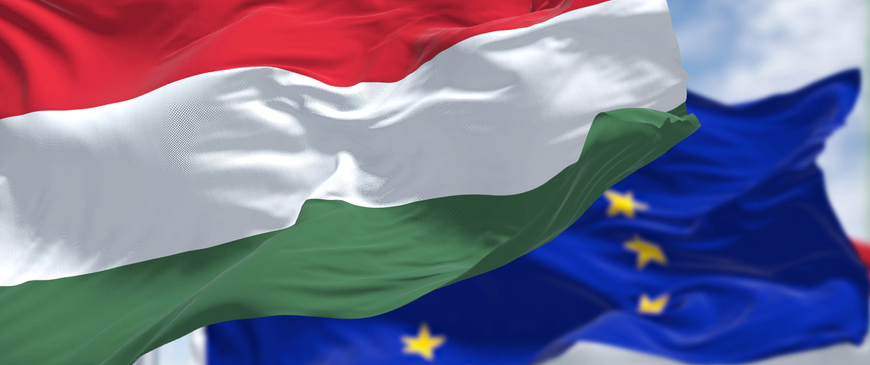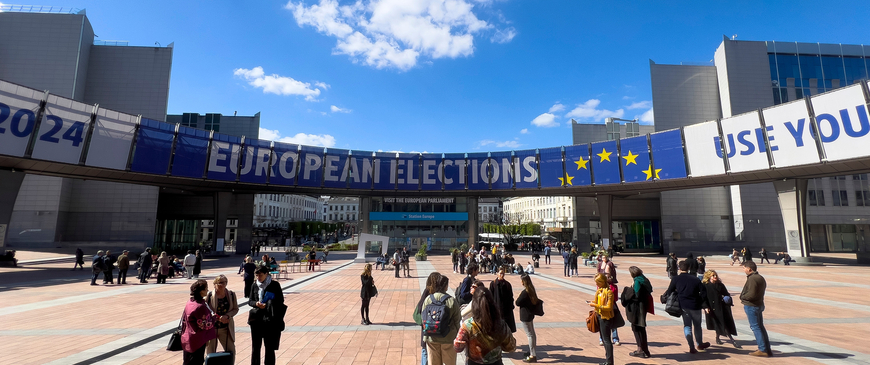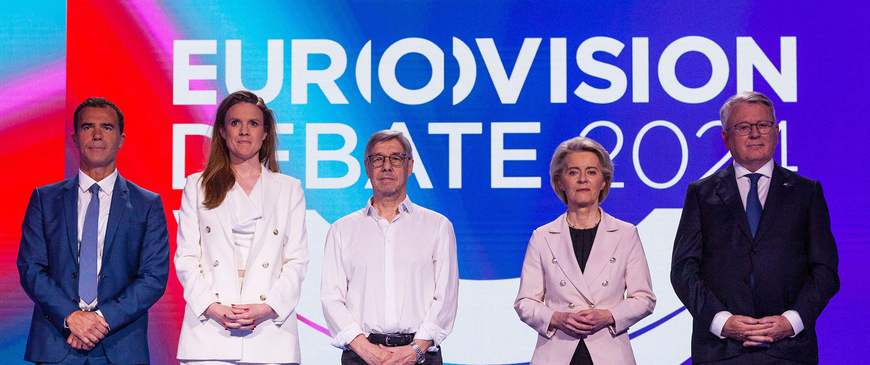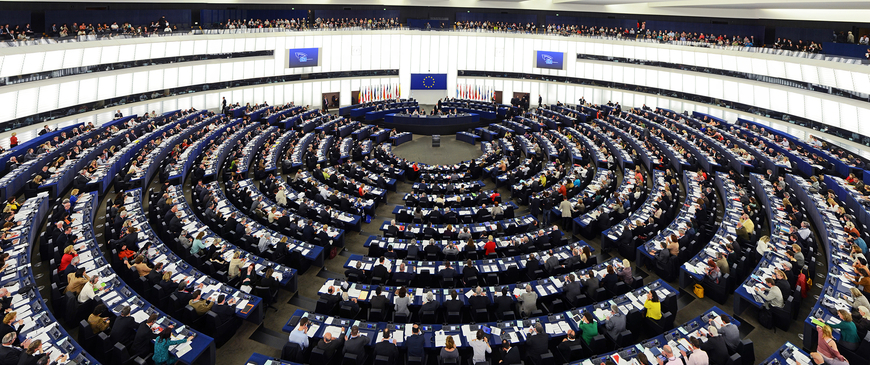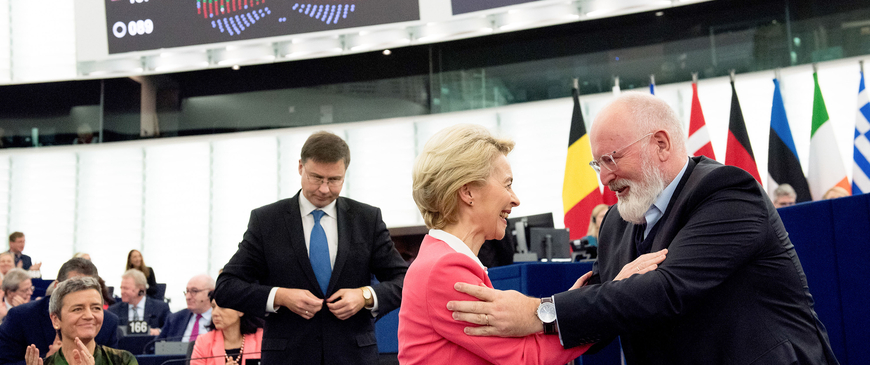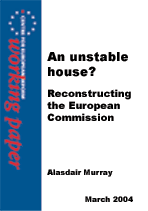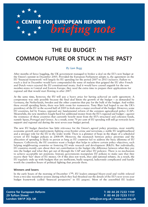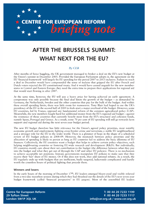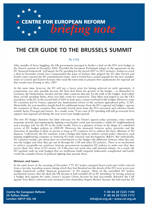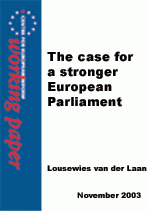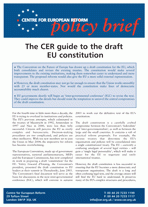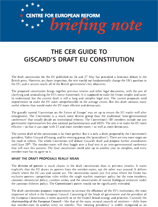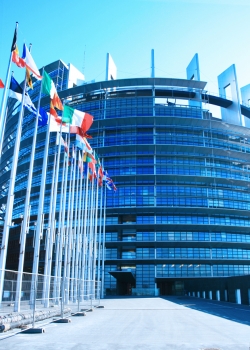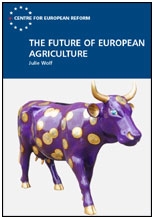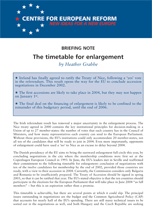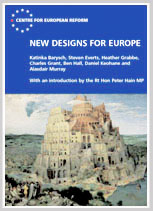EU institutions & treaties
Issue 36 - 2004
28 May 2004
- Where are the Eastern hordes?, Heather Grabbe
- Who's afraid of the charter of rights?, Mónica Roma
- If Britain votes no ..., Charles Grant
An unstable house? Reconstructing the European Commission
05 March 2004
For fifty years, the Commission has not only overseen the EU's day-to-day functioning, it has also often led the debate on the Union's direction and future. However, over the last decade or so, the Commission has lost much of its credibility.
The EU budget: Common future or stuck in the past?
06 February 2004
The EU's common budget is small and rather rigid. Most of its outlays are determined years in advance, and most of them go on just two policies, namely support for farmers and poorer regions. Yet the EU budget invariably attracts acrimonious debate and close scrutiny out of all proportion to its economic significance.
Should Britain hold a referendum on the EU Constitution?
01 January 2004
Dear Charles,
European leaders are busy drawing up a constitution which will set out what tasks the EU should and should not perform; clarify who is responsible for what; and specify how the EU takes decisions. Once governments have agreed a final text, the question becomes: how should each country...
European leaders are busy drawing up a constitution which will set out what tasks the EU should and should not perform; clarify who is responsible for what; and specify how the EU takes decisions. Once governments have agreed a final text, the question becomes: how should each country...
After the Brussels summit: What next for the EU?
16 December 2003
The manner and speed at which the Brussels European Council collapsed took most observers by surprise. Heads of state and government had arrived on the morning of Friday 12 December 2003, expecting negotiations to last until late on Sunday 14.
The CER guide to the Brussels summit
05 December 2003
It is six months since the European Convention, a gathering of parliamentarians, government representatives and experts, presented its draft for an EU constitutional treaty. Since November, the EU governments – the current 15, plus the ten due to join on 1 May 2004 – have been negotiating a revision of this draft, in an 'inter-governmental conference' (IGC).
Issue 33 - 2003
28 November 2003
- Is Europe working? , Katinka Barysch
- Should Britain hold a referendum on the EU Constitution?, Steven Everts and Charles Grant
- A joined-up EU security policy , Daniel Keohane and Adam Townsend
The case for a stronger European Parliament
07 November 2003
The EU urgently needs a stronger and reformed European Parliament (EP). With 60 per cent of all legislation affecting citizens' lives discussed in Brussels, EU decision-making must become more democratic.
The CER guide to the draft EU constitution
03 October 2003
For the fourth time in little more than a decade, the EU is trying to overhaul its institutions and policies. The EU’s previous attempts, which culminated in the treaties of Maastricht in 1992, Amsterdam in 1997 and Nice in 2000, were less than fully successful. Citizens still perceive the EU...
A clean break for Europe
01 October 2003
Europe needs to change. Those who constantly have to defend the concept of Europe against ill-informed criticism can easily slip into a defensive mode. But if we are serious about reform, we need to be on the front foot.
Issue 32 - 2003
26 September 2003
- If it's broken, fix it! , Katinka Barysch
- A clean break for Europe , Nick Butler
- The EU must be tougher and more creative on Iran, Steven Everts
An unconventional bargain
02 June 2003
The Convention on the future of Europe has now entered its final phase. To the surprise of many it has already reached consensus on many elements of a new constitution for the EU.
The CER guide to Giscard's draft EU constitution
30 May 2003
The draft constitution for the EU published on 26 and 27 May 2003 has provoked a ferocious debate in the British press. However, on closer inspection, the text would not fundamentally change the UK’s position in the EU, and it secures nearly all of the British government’s key objectives.
More power for the parliament
01 April 2003
The Convention on the future of Europe is drawing up a constitution that is supposed to transform the EU. Much of the discussion has focused on the EU's executive: the powers of the Commission, the organisation of the EU presidency and the role of the European Council.
Issue 29 - 2003
28 March 2003
- More power for the parliament , Pervenche Bérès MEP
- The decline of American power, Charles Grant
- War: Who is to blame, Pierre Hassner
Why Europe does not need a new president
02 December 2002
Powerful political forces in the Convention on the future of Europe and elsewhere, are calling for the appointment of a president of the European Council.
Issue 27 - 2002
29 November 2002
- The EU's budget: Time to go back to basics , Friedrich Heinemann
- A credible competition process , Alasdair Murray
- Why Europe does not need a new president , Peter Sutherland
The future of European agriculture
01 November 2002
The need to reform European farm policies has never been clearer. Although the Brussels European Council in October put a ceiling on farm spending, the Commission's 'mid-term review' of the Common Agricultural Policy (CAP) will continue, and there is a real chance to change the policy's priorities over the next few years.
The timetable for enlargement
21 October 2002
The Irish referendum result has removed a major uncertainty in the enlargement process. The Nice treaty agreed in 2000 contains the key institutional principles for decision-making in a Union of up to 27 member-states: the number of votes that each country has in the Council of Ministers, and how many...
New designs for Europe
04 October 2002
Everybody agrees that the EU's institutions are in bad need of reform. In the Convention on the Future of Europe, and elsewhere, a real debate has begun on how Europe should be governed.

